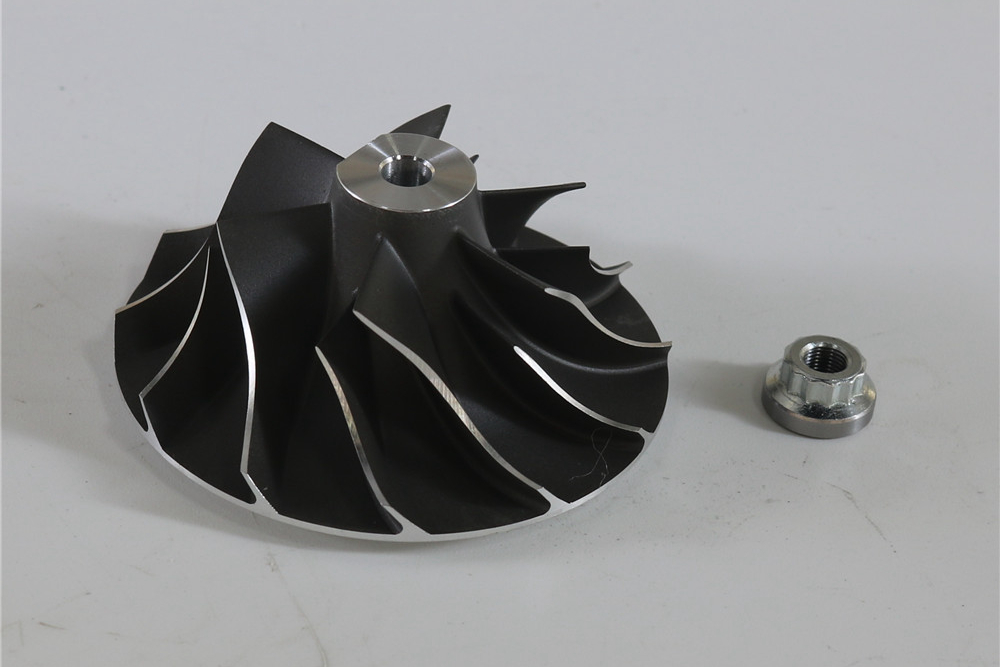Precision Titanium Ti-6Al-4V (TC4) CNC Machining for High-Performance Automotive Parts
Titanium Ti-6Al-4V, widely known as TC4, has revolutionized various industries due to its outstanding balance of strength, durability, and lightweight characteristics. Among these sectors, the automotive industry notably benefits from TC4's unique properties, especially in the realm of high-performance vehicles where reducing weight without sacrificing structural integrity is critical. This article comprehensively examines precision CNC machining services tailored specifically for TC4 alloy automotive components, delving deeper into manufacturing processes, the alloy's material properties, diverse surface treatment methods, real-world automotive applications, advantages, limitations, and future trends in automotive manufacturing.
Manufacturing Process
Precision CNC machining of Titanium Ti-6Al-4V (TC4) automotive parts demands specialized techniques and advanced machinery to handle the complexities of titanium machining. Our facility implements several key processes:
CNC Milling: Utilizing advanced multi-axis CNC milling machines, we expertly craft complex geometric features, detailed cavities, and contours that conventional methods can't efficiently achieve. Our CNC Milling Service includes 3-axis, 4-axis, and 5-axis CNC Milling, significantly increasing precision and decreasing production time.
CNC Turning: Our CNC Turning Service ensures dimensional accuracy for symmetrical or cylindrical automotive parts, such as axles and drive shafts, guaranteeing tight tolerance adherence.
Precision Drilling: Our CNC Drilling Service accurately creates precise, high-quality holes, optimizing structural integrity and functionality in automotive engine and suspension components.
Multi-Axis Machining: Multi-axis machining drastically reduces cycle times and eliminates additional setups. Complex automotive components, such as suspension parts and turbocharger housings, are efficiently manufactured using Multi-Axis Machining.
Precision Grinding: Our CNC Grinding Service achieves ultra-fine surface finishes and micron-level tolerances necessary for precise engine components and transmission parts.
Each stage of our process prioritizes efficiency and quality, reducing material wastage, minimizing production time, and maintaining the alloy's structural integrity through controlled machining parameters.
Titanium Ti-6Al-4V: Material Deep Dive
Titanium Ti-6Al-4V, or TC4, consists primarily of titanium with 6% aluminum and 4% vanadium. This alloy is known for extraordinary strength-to-weight performance, demonstrating significantly higher specific strength compared to steel. Additional properties include:
Outstanding Corrosion Resistance: Resists corrosion from harsh automotive environments, including exposure to salts, acids, oils, and chemicals.
High-Temperature Stability: Maintains structural integrity at elevated temperatures, essential for engine and exhaust components subjected to heat extremes.
Biocompatibility: Non-toxic properties make it suitable for automotive safety components and even advanced interior automotive applications.
Fatigue Resistance: Exceptional fatigue strength prolongs component life, especially crucial for repetitive stress environments.
Surface Treatments and Their Importance
Surface treatments greatly enhance TC4 components' performance in automotive applications, addressing specific requirements like corrosion resistance, aesthetics, or wear resistance:
Anodizing: Anodizing enhances the natural corrosion resistance of titanium, adding color variations beneficial for aesthetics and easy identification of automotive parts.
PVD Coatings: PVD coatings significantly boost surface hardness, reduce friction, and extend component longevity, ideal for wear-prone areas.
Passivation: This surface treatment creates a protective oxide layer, ensuring the automotive parts resist environmental corrosion effectively.
Shot Peening: Used extensively to introduce compressive stresses, this process greatly enhances fatigue resistance and increases component lifespan, particularly beneficial for rotating and stress-bearing parts.
Industry Application Examples
Automotive manufacturers leverage Titanium Ti-6Al-4V extensively for components that directly influence vehicle performance and safety:
Performance Engine Components: Including pistons, connecting rods, valve components, and exhaust manifolds. TC4's high strength and thermal resistance provide sustained performance in demanding conditions.
Suspension Components: Lightweight and durable suspension springs and control arms improve vehicle handling characteristics without sacrificing reliability or safety.
Transmission Components: Gears and shafts machined from TC4 offer excellent reliability and improved fuel economy due to weight reduction.
Brake Systems: Brake calipers and discs benefit from the alloy's thermal stability and lightweight properties, reducing unsprung mass and enhancing handling dynamics.
Advantages and Limitations
Advantages:
Superior Weight-to-Strength Ratio: Enhances overall vehicle performance, efficiency, and fuel economy.
Corrosion and Chemical Resistance: Reduces maintenance and ensures longevity even under harsh environmental conditions.
Thermal Stability: Ideal for high-temperature automotive applications, including performance-critical engine components.
Biocompatibility: Suitable for safety-critical applications, ensuring reliability and safety in advanced automotive systems.
Limitations:
Machining Complexity: Requires specialized tooling and expertise, resulting in higher initial production costs compared to conventional materials.
Cost Factors: High-quality titanium alloys are generally more expensive than traditional automotive materials like aluminum or steel.
Process Sensitivity: TC4 alloy requires precise machining parameters and careful thermal management to prevent deformation and material damage.
Despite these challenges, the automotive industry's demand for premium performance justifies the additional costs and machining complexities associated with TC4.
Future Trends and Innovations
Emerging technologies such as additive manufacturing and advanced CNC machining processes are further increasing TC4's feasibility and accessibility in automotive manufacturing. These innovations offer improved precision, reduced cycle times, and more cost-effective production, gradually mitigating traditional cost limitations.
Automotive OEMs and manufacturers are continually exploring advanced TC4 components to push the boundaries of performance, safety, and efficiency in next-generation vehicles.
Conclusion
The precise CNC machining of Titanium Ti-6Al-4V (TC4) significantly impacts automotive part manufacturing, providing unmatched advantages in weight reduction, performance enhancement, and corrosion resistance. Despite challenges related to cost and complexity, TC4's unique combination of material properties, along with optimized manufacturing processes and surface treatments, positions it as an invaluable resource for high-performance automotive manufacturing.
FAQs
Why is Titanium Ti-6Al-4V preferred in high-performance automotive components?
What are the critical considerations when machining TC4 Titanium alloy?
How does CNC machining enhance precision for automotive applications?
What surface treatments improve the lifespan of automotive titanium components?
How does Titanium Ti-6Al-4V compare to other automotive alloys in terms of cost-effectiveness and performance?

